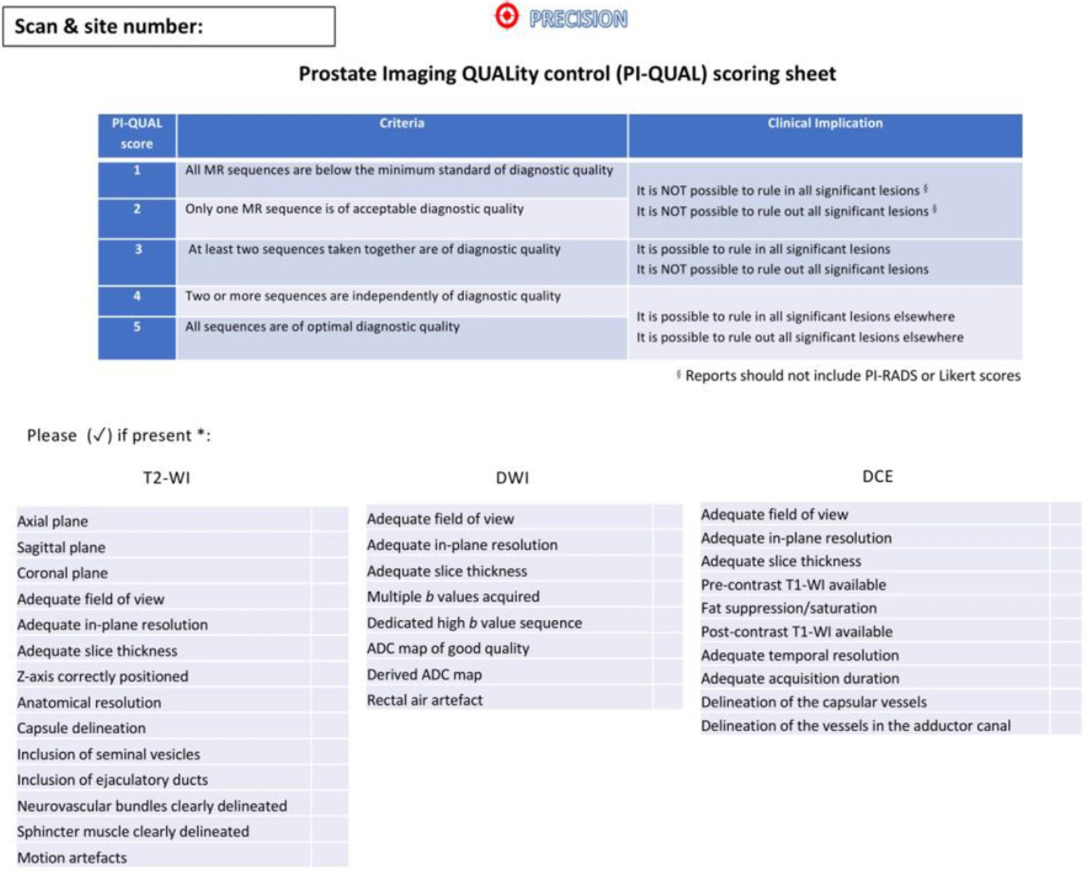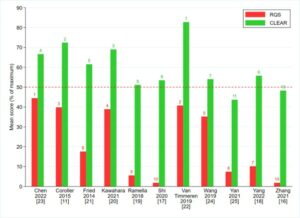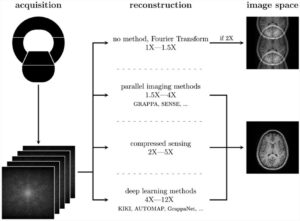We know that the technical requirements for the acquisition of multiparametric MRI of the prostate have been clearly outlined in the PI-RADS guidelines, but there is still huge variability in image quality among centres across the world. The Prostate Imaging Quality (PI-QUAL) score and its dedicated scoring sheet represent the first attempt to standardise image quality, as they take into account both the technical parameters that can be obtained from the DICOM files and a visual evaluation of certain features on prostate MRI (e.g., anatomical structures).
In this study, we retrospectively analysed the image quality of ten scans from different vendors and magnets using a semi-automated dedicated PI-QUAL software program and compared the time needed for assessing image quality using two methods – semi-automated assessment vs manual filling of the scoring sheet. This semi-automated software can assess the technical parameters automatically, but the visual assessment is still performed by the radiologist.
We observed a significant reduction in the reporting time of prostate MRI quality according to PI-QUAL using the dedicated software program compared to manual filling (5′54″ vs 7′59″; p = 0.005) and we concluded that a semi-automated PI-QUAL software program allows the radiologist to assess the technical details related to the image quality of prostate MRI in a quick and reliable manner, allowing clinicians to have more confidence that the quality of the MRI of the prostate is sufficient to determine patient care.
Key points
- A semiautomated tool for prostate multiparametric MRI (mpMRI) quality can be built using the Prostate Imaging Quality (PI-QUAL) score.
- Our PI-QUAL software program allows a quick assessment of the technical parameters of prostate mpMRI.
- The application of this tool will help in the future refinement of the PI-QUAL score.
Article: Multiparametric prostate MRI quality assessment using a semi-automated PI-QUAL software program
Authors: Francesco Giganti, Sydney Lindner, Jonathan W. Piper, Veeru Kasivisvanathan, Mark Emberton, Caroline M. Moore & Clare Allen













